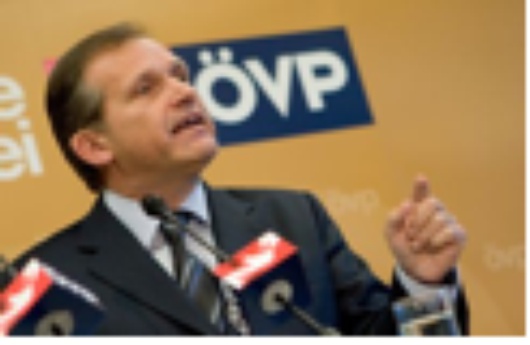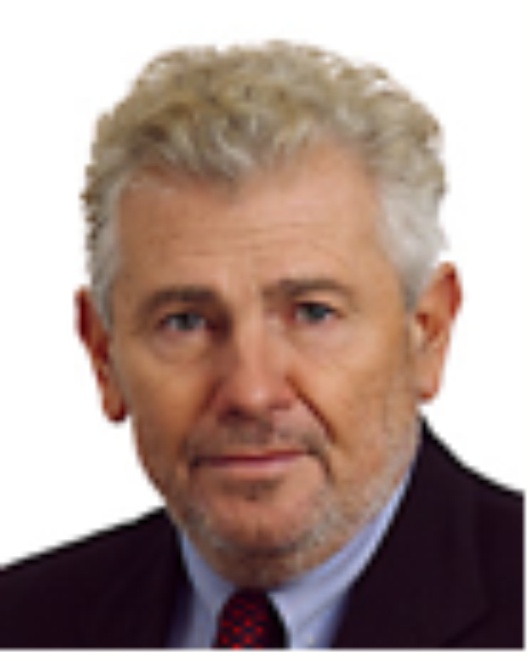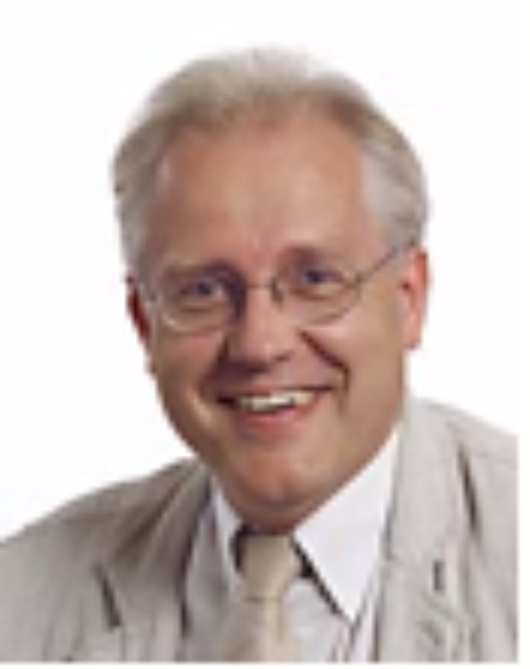
Old Warhorses and newcomers: assessing the Austrian EU candidates
Published on
By Daniel Spichtinger What kind of people are courting our votes in the upcoming European parliamentary elections? Are they old or young? Running for the first time or already established? Men and Women? How have they previously voted in the European Parliament? Are they more loyal to their political group or to other MEPs from Austria?
These are the questions we are trying to answer in our assessment.
Generally, there seem to be two groups of candidates in Austria. The first group, the “old warhorses”, are MEPs who have represented Austria for a long time in the European Parliament. These MEPs, like Hannes Sowboda (SPÖ) or Othmar Karas (ÖVP) have developed a reputation for expertise in specialised areas and have risen through the ranks of their political grouping in the EP. At the same time, their standing in their own national parties can be somewhat weak.
The second group of people are the “newcomers”, candidates who have no previous experience in the European Parliament and who are often drawn from all sorts of different professions. Some of those have been active in national politics, like the ÖVP main candidate, Ernst Strasser. Others are completely unknown – especially in the Eurosceptic parties the candidates in second or third place are not well promoted by their parties. It is also noteworthy that the Greens only promote their two main candidates – the other ones appear as nameless faces on the poster but are not mentioned on the website.
On average the Austrian candidates are middle-aged to old. Among those with a realistic chance of being elected only one candidate, Elisabeth Köstinger (ÖVP) was born in the late seventies. Looking at data from the Vote Watch website (http://www.votewatch.eu/) Othmar Karas (ÖVP) has the highest attendance record in the plenary sessions. The independent MEP ‘Andreas Mölzer has the worst attendance record and is also the Austrian MEP least likely to vote the same way as his national colleagues. Interestingly, however, Austrian MEPs are the ones most likely to attend plenary meetings among all European MEPs (Italians are least likely).
Below is a list of the key Austrian candidates for a seat in the European Parliament grouped according to their national parties. The list encompasses both current MEPs standing for re-election as well as first time candidates. In the description I have made use of the material provided by the national parties, the European Parliament website and Vote Watch.
SPÖ (Social-Democrats)
 Hannes Swoboda – main candidate – for
re-election
Hannes Swoboda – main candidate – for
re-election
Born in 1946, Hannes Swoboda has been a Member of the European Parliament for the Social-Democratic Party since 1996. He is particularly active concerning relations with the countries of South Eastern Europe and is the rapporteur for the accession of Croatia. Swoboda is also Vice-President of the Socialist Group in the European Parliament. According to Vote Watch Mr. Swoboda has a plenary attendance record of 93,98% and is very loyal to his political group (96,87%) and his member state (91,22%).
Evelyn Regner – new
Born in 1966, Evelyn Regner has been running the office of the Austrian Trade Union Federation in Brussels for the last eight years. She is also a member of the Economic and Social Committee and sits on the steering committee of the Trade Union advisory panel to the OCED. If elected she wants to fight against the reduction of average wages.
Jörg Leichtfried – for re-election
Jörg Leichtfried, born in 1967, is specialised in transport policy, animal protection and civil liberties. He is also a member of the delegation for Central America and the Andean Community. According to Vote Watch Mr. Leichtfried has a plenary attendance record of 93,98% and the loyalty ratings for voting with his political group and with his colleagues from Austria are 91,47% and 89,21% respectively.
Karin Kadenbach – neu
Although she was born in Vienna in 1958 Karin Kadenbach has spent the last years as a member of the Lower Austrian Regional Assembly. She has been working not only on Women, Family and Social Affairs but also on health policy.
Josef Weidenholzer – new
Josef Weidenholzer is the Chairman of the Institute for Society and Social Policy at the Johannes Kepler University Linz. As president of the Volkshilfe (a social service NGO) he is an expert on social policy.
Christa Prets – for re-election
Born in the Burgenland province in 1947 Christa Prets has been a MEP since 1999. She is specialised in cultural diversity, education and training, youth, media and sports. She is also a member of the delegation for relations with Iran. According to Vote Watch Christa Prets has an attendance record of 96.32% and a loyalty record of 95.47% for voting in line with her party and 91.66% for voting in line with the other Austrian MEPs.
Herbert Bösch – for re-election
Hailing from Austria’s Westernmost province, Vorarlberg, Herbert Bösch, born 1954, is a member of the European Parliament’s Committee on Budgetary Control and deals with the fiscal transparency of the EU. He has an attendance of 95.32% and a loyalty record of 94.31% (voting with the Socialists) and 91.53% (voting with Austrian MEPs).
ÖVP (Conservatives)
 Ernst Strasser – main candidate - new
Ernst Strasser – main candidate - new
A former Minister of the Interior, Ernst Strasser (born 1956) has replaced Othmar Karas (now second on the list) as the main candidate for the Conservative Party. Known for his law and order policies, if elected Strasser wants to focus on the challenges of the global economic crisis.
Othmar Karas – for re-election
Born in 1957, Othmar Karas was briefly Secretary General of the Austrian Conservative Party and has been a member of the European Parliament since 1999. He is also Vice Chairman of the Group of the European People's Party. As a member of the Internal Market Committee many of his activities have focused on SMEs. Karas has a 97.99% plenary attendance record and voted with his colleagues from the European People’s Party in 94.46% of all votes. He voted the same way as the other Austrian MEPs in 75.46% of all votes.
Hella Ranner - new
Hella Ranner, born in 1951, is a member of the Styrian ÖVP. She is a lawyer and president of the local convention centre. Unfortunately, no further information about her was available from the ÖVP.
Richard Seeber – for re-election
Richard Seeber, born in 1962, has been a member of the European Parliament since 2004. As a member of the Committee on the Environment, Public Health and Food Safety he has focused on questions concerning water and water quality. Further focal areas of his work are climate protection, air quality and mountainous territories. Richard Seeber attended the plenary sessions in 96.66% of all sessions held and votes with the EVP in 93.82%. According to Vote Watch he votes with the other Austrian MEPs in 75.22% of all votes.
Paul Rübig – for re-election
Paul Rübig (born 1953) has previously served as a member of the Austrian Parliament and as Vice President of the Chamber of Commerce of Upper Austria. Elected for the European Parliament in 1996 he is a member of the Committee on Industry, Research and Energy and received the MEP award 2008 for innovation and research. According to Vote Watch Paul Rübig has a plenary attendance record of 95.65%, a party loyalty record of 95.24% and a member state loyalty record of 74.76%
Elisabeth Köstinger -new
Born in 1978 Elisabeth Köstinger is the youngest of all Austrian candidates. She is the chairwomen of the Austrian Association of Young Farmers and wants to support farmers and strengthen the regions in the EU.
Hubert Pirker – for re-election
Born in 1948 Hubert Pirker has been an MEP since 1996. He is the representative of the Austrian Conservative Party for security issues. He was also Chairman of the Stability Pact Initiative against Organized Crime. Mr. Pirker has an attendance record of 90.05% of all plenary meetings. He votes with the conservatives in 95.33% of all votes and with the Austrian MEPs in 77.16%
Grüne (Greens)
 Ulrike Lunacek – main candidate - new
Ulrike Lunacek – main candidate - new
Born in 1957 Ulrike Lunacek is member of the Austrian Parliament and Speaker of the European Green Party. Lunacek demands European answers for the financial crises and the creation of 5 millions jobs through a “Green New Deal”.
Eva Lichtenberger – for re-election
Born in 1954 Eva Lichtenberger has been a member of the European Parliament since 2004. As a member of the Committee on Transport and Tourism she has been heavily involved in transport policy. She has also been active in fighting software patents. Additionally, Eva Lichtenberger is Vice Chairwoman of the Group of the Greens/European Free Alliance in the European Parliament. According to Vote Watch she has a plenary attendance record of 86.96% and votes with the European Greens in 97.31% of all votes. She votes the same way as the majority of Austrian MEPs in 72.70% of all votes.
FPÖ (Freedom Party)
 Andreas Mölzer – main candidate - for
re-election
Andreas Mölzer – main candidate - for
re-election
Born in 1952, Andreas Mölzer was first elected to the European Parliament in 2004. He is a member of the Committee on Constitutional Affairs and the Delegation to the EU-Turkey Joint Parliamentary Committee. Mölzer is opposed to the treaty of Lisbon and the possible accession of Turkey to the EU. He has recently published a EU critical book entitled “Europa 2084”. Mölzer is not a member of any political group in the European Parliament. He has a plenary attendance record of 80.27% and votes the same way as other Austrian MEPs in 40.29% of all cases.
Franz Obermayr - new
Franz Obermayr, born in 1952, was Vice-Mayor of Linz.
BZÖ
 Ewald Stadler – main candidate - new
Ewald Stadler – main candidate - new
Ewald Stadler, born in 1961, used to be active in the FPÖ and has recently sat in the Austrian Parliament for the BZÖ.
Jörg Freunschlag - new
Although officially retired, Jörg Freunschlag, has been nominated in second place after Ewald Stadler, representing his home province Carinthia.
Hans-Peter Martin
 Hans-Peter Martin – main candidate - for
re-election
Hans-Peter Martin – main candidate - for
re-election
Hans-Peter Martin (born 1957), has been active in the European Parliament since 1999 – first as a candidate for the Social-Democrats and then as an independent member. Having recently published a book entitled “die Europafalle” (the Europe trap) Martin is critical of the EU as a whole. He is a member of the Committee on Economic and Monetary Affairs and the Committee on Budgetary Control. Hans-Peter Martin has an attendance record of 96.98% of all plenary meetings. He votes the same way as other Austrian MEPs in 59.97% of all votes.
Pictures
Swoboda – European Parliament
Strasser – ÖVP Website
Lunacek – Grüne Website
Mölzer – European Parliament
Stadler – Wikipedia
Hans-Peter Martin: European Parliament



